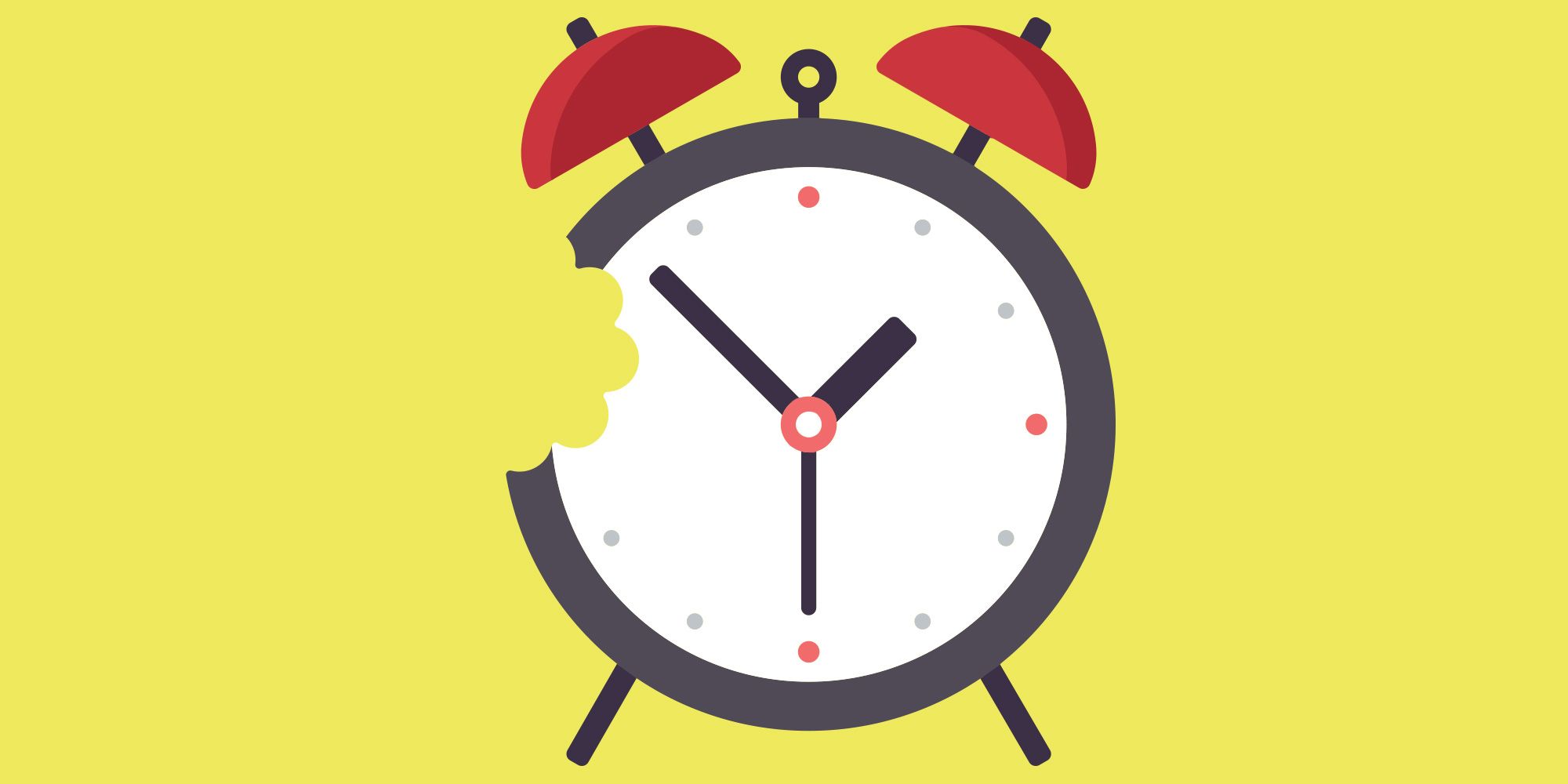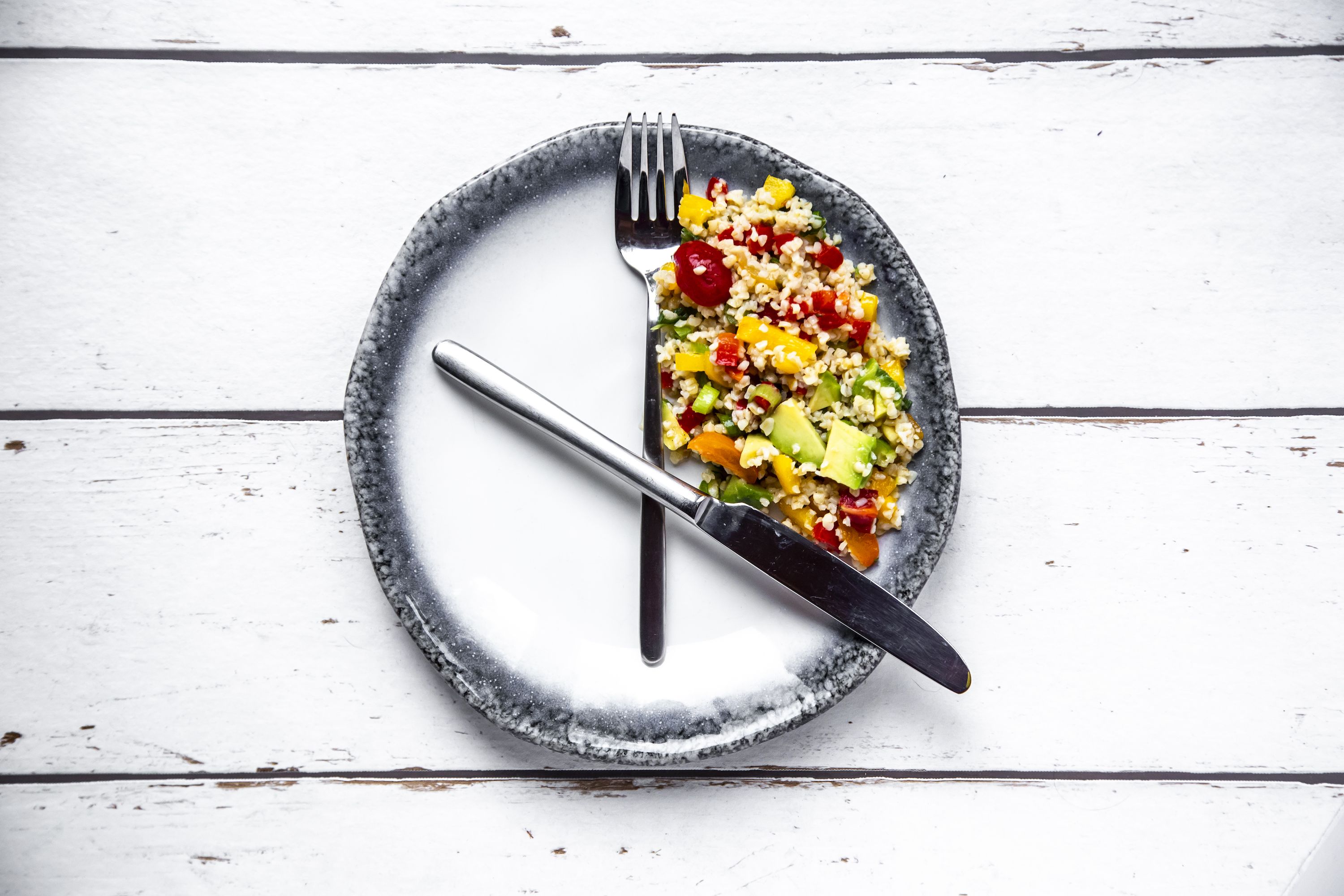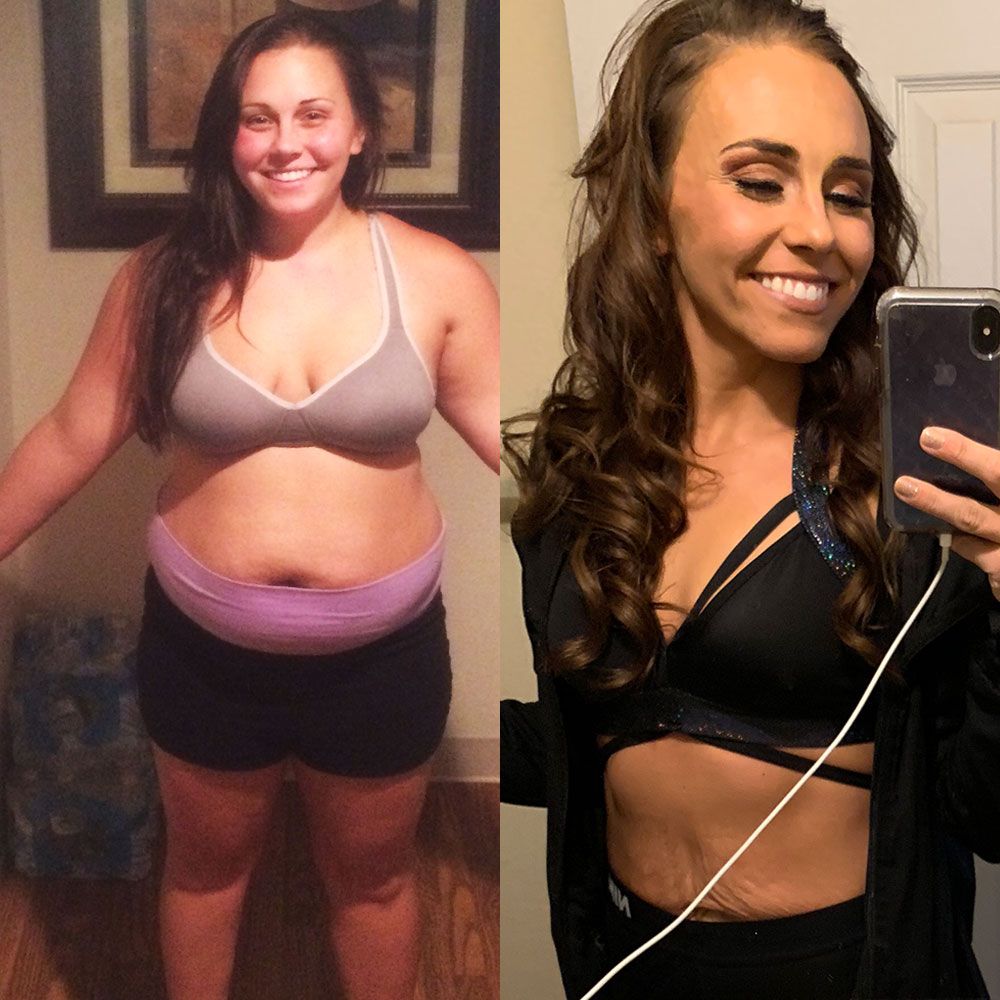If you’re thinking about trying intermittent fasting, you must be pretty confident in your ability to go without food in the morning…and at lunch…and into the late afternoon (seriously, fasting is no joke). But what about skipping coffee while doing intermittent fasting? It might not be a food group, but I think we can all agree it is pretty essential.
A little background: Intermittent fasting may help improve blood pressure, reduce liver fat, and lower cholesterol on top of reducing body weight, according to the University of Michigan Health Lab. Why tho? Well, the science is still somewhat undercooked, tbh. Theoretically, there’s an exchange of sugar for energy that happens during intermittent fasting that could cause you to shed pounds.
When you deprive your body of calories, it goes into a temporary state of starvation and slowed metabolism that forces your fat cells to give up the glucose they’re storing in order to fuel your body, says registered dietitian Barbie Boules of Barbie Boules Longevity Nutrition. Over time, with repeated temporary fasting, this can lead to weight loss. (Fasting all the time would, in theory, permanently slow your metabolism and counteract the benefits, so you don’t want to under-eat around the clock.)
But again, all of that’s still just a theory. “We don’t yet know conclusively what happens in humans [during fasting], and if it’s any more beneficial than simply reducing overall calories,” says Boules. What’s more, so far the studies that have shown those positive results have mostly been in rats, not humans.
If you’re still curious and in need of your coffee in the a.m., though, here’s what you need to know about how an intermittent fasting diet will affect your coffee-drinking habits.
Can I combine coffee and intermittent fasting?
Because a cup of brewed coffee is fat-free and almost no-cal, it won’t screw up your fast…so long as it’s black coffee, says Boules. All your regular coffee variations and add-ins will cost you fat and calories—and consuming fat and calories means you are no longer fasting.
According to the USDA, plain black coffee is around two to five calories (per cup). But once you start pouring in sugar, milk, or cream, you’re adding anywhere from 16 to nearly 100 more calories to your morning joe. So while coffee can be a decent way to feel like you’re consuming something during your fasting hours, make sure you’re drinking it black to keep your calories almost nonexistent. The more calories you feed your body, the more outside fuel it has to use as energy, which means it won’t utilize the glucose stored up in your fat cells, in theory. Fast, broken.
But you don’t necessarily want to start a coffee-drinking habit just to soothe your hunger pains if you’re doing intermittent fasting. Caffeine can temporarily speed metabolism and potentially take you out of that starvation mode. “But if you’re [already] a regular caffeine consumer, the thermogenic effect is minimal,” explains Boules.
In other words, if you’re already addicted to an a.m. coffee, you should be okay: The calories are minimal and your body is adjusted to the caffeine. But if you were a decaf tea drinker before, don’t start chugging espresso, mmkay?
Can coffee enhance the effects of intermittent fasting?
Since coffee makes you feel revved up, it’s only natural to wonder if it can give you an added boost when you’re fasting. Here’s the thing: There’s no data to either support this idea or shut it down, so it’s really hard for experts to say one way or another.
But it’s unlikely that coffee will do much, if anything, to give you a weight-loss boost of any sort when you’re fasting, says Scott Keatley, RD, of Keatley Medical Nutrition Therapy.
Black, unsweetened coffee “increases metabolic rate by about 3 to 4 percent,” Keatley says, noting that this can be seen in a very slight increase in your body temperature. “The effect peaks at about 90 minutes after consumption, and the effect is seen in subsequent cups of coffee as long as they are spaced out by about two to three hours,” he says.
Got all that? Cool, cool. Here’s the slight issue with this, Keatley adds: Fasting actually slows down your metabolism as your body tries to decrease your metabolic rate to conserve energy. So, while coffee might increase your metabolism slightly during a fasting state, your body is also operating at a slower speed. Essentially, you’re really not gaining anything special by drinking black coffee.
What can I put in my coffee that won’t break my fast?
“The general rule for what to put in your coffee is that it basically has zero calories,” says Keri Gans, RD, author of The Small Change Diet. “In other words try and enjoy it black.”
But having your coffee black just might not be your ~thing~ and that’s okay. Keatley says you can add the following to your coffee and still not break your fast:
- A sprinkle of cinnamon
- A touch of nutmeg
- A teensy bit of cocoa
- Low-calorie sweeteners like Splenda
Unfortunately, buzzy supplements such as collagen powder or MCT oil *can’t* be added to your cup of coffee, “as one serving does provide too many calories,” Gans says.Ditto for a splash of milk or unsweetened almond milk in your coffee, she adds—it contains too many calories.
What else can I drink while I’m in a fasted state?
Obviously, you can drink water—you can even punch it up with some fresh fruit or a squeeze of lemon for flavor as long as you aren’t actually eating the fruit. But Boules says you can also reach for unsweetened tea, which is zero calories without anything extra added to it.
What you can’t drink, however, are things like fruit juices, green juices, or smoothies. This trips people up sometimes, because we tend to think stuff in liquid form is calorie-free, just like water. But juices and smoothies are made with food, which means they have enough calories to break your fast.



“The whole idea behind the alleged health-promoting benefits is actually fasting (i.e., zero calories or energy intake),” says Boules. “[If you’re] consuming something caloric during ‘fasting hours’ in the form of sweetened beverages, juices, or smoothies, you’re not fasting.”
Remember, the whole concept of intermittent fasting relies on a prolonged, uninterrupted period of not consuming any calories (otherwise, your body won’t go into the state of starvation necessary for your insulin levels to drop and your body to burn fat).
Most people opt for a 16:8 diet—fasting for 16 hours per day and eating during an 8-hour window—though it’s not totally clear as of now if 16 hours of intermittent fasting is the magic number of fasting hours to see weight-loss results. But, that’s a reasonable rule to follow until science reveals more about IF. (A 2016 study actually proposed an 18-hour fast for maximum weight loss—but the sample size was tiny, only 11 people.)
Can I eat *anything* during my fasting window?
Unfortunately, Boules says that consuming any calories your body could convert to energy for fuel means you are not fasting anymore. Period.

So what can you chew on? Well, it’s not terribly exciting, but feel free to reach for some sugar-free gum or hard candy with sugar alcohols or non-nutritive sweeteners like xylitol, which Boules says don’t affect your calorie intake or blood glucose in the way that regular sugar does, so you won’t be breaking your fast. (But the artificial kinds could cause some bloating or mild GI upset, FYI).
But if you’re finding that you’re a raging hunger monster while doing intermittent fasting or just otherwise totally miserable, it’s okay to quit and try something else—fasting certainly is not for everyone. “If you are genuinely physically and emotionally nourished and satisfied [while] confining food to a set number of hours per day, do you,” says Boules. “If you’re not, just understand this is not required to achieve your goal of good health.”
Source: Read Full Article
